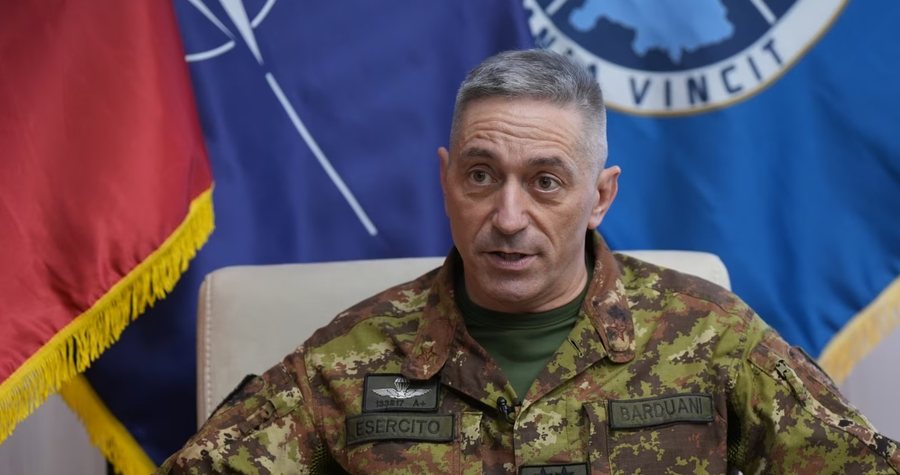
The Commander of the North Atlantic Treaty Organization (NATO) peacekeeping mission in Kosovo - KFOR, Major General Enrico Barduani, has stated that, despite the ongoing political blockade in Kosovo, KFOR is not concerned about any immediate threat to security and remains fully prepared to face any attempt at destabilization.
In an interview with Radio Free Europe, Barduani stressed that election periods can create space for external actors with bad intentions, but that KFOR sees the current situation in Kosovo as part of normal democratic processes.
“KFOR is not worried,” he said. “We are well equipped and positioned to deal with any potential security threat.”
More than a month after the certification of the results of the February 9 election, Kosovo has still not managed to form new institutions.
Eleven attempts to constitute the Kosovo Assembly failed, and in this situation, it is not yet possible to proceed with the formation of the Government.
Speaking about the broader security landscape, Barduani recalled two major incidents in northern Kosovo — the armed attack in Banjska, in September 2023, and the attack on the Ibër-Lepenc water canal, in November 2024.
He highlighted NATO's rapid response to the violence in 2023, when 1,000 additional troops were deployed to strengthen KFOR's presence, especially in the north.
"The situation remains calm, but vulnerable to sudden escalation," Barduani warned, citing unresolved issues due to the lack of progress in the European Union-mediated dialogue between Pristina and Belgrade.
For the attack on the Iber-Lepenc canal, Kosovo institutions accused Serbia of being responsible for the incident, but the latter denied any involvement in the case.
Asked about the risk of future attacks, Barduani avoided speculation but stressed KFOR's continued readiness. "We maintain a rapid, flexible and visible presence throughout Kosovo, and we are ready to act if necessary," he said.
The KFOR Commander placed special emphasis on cooperation with the Kosovo Police and the European Union Rule of Law Mission in Kosovo (EULEX).
"We conduct joint patrols, training exercises, and maintain constant contact," he stressed, adding that rapid communication by the Kosovo Police during operations in the north is essential to avoid misunderstandings and unnecessary escalations.
Relations with the Serbian Armed Forces were described as stable and transparent. Barduani confirmed regular meetings and continuous communication with the Serbian military leadership to ensure monitoring of activities near the administrative border line.
"We have every reason to expect continued cooperation," he said, citing synchronized patrols and joint monitoring as key tools for preventing smuggling and strengthening stability.
Despite the strong military presence, Barduani reiterated that peace in Kosovo and the entire Western Balkans cannot be achieved by military means alone.
"KFOR and NATO can only do what is militarily possible. The long-term solution is political," he stressed, expressing full support for the EU-mediated dialogue between Kosovo and Serbia.
He welcomed the appointment of the EU Special Representative for the dialogue, Peter Sorensen, with whom he has already held meetings, confirming KFOR's support for diplomatic efforts.
"To move this dialogue forward, both sides must show flexibility, make the necessary compromises, and focus on long-term benefits," said Barduani.
Speaking about the future, Barduani praised Kosovo's cooperation with NATO and expressed support for the country's Euro-Atlantic aspirations.
"The entire Western Balkans should have access to the Euro-Atlantic area as part of Europe," he declared.
"The key to resolving the remaining issues in the region is the willingness of all actors to embrace diplomacy, reject violence and work towards compromises," concluded Barduani./ REL (A2 Televizion)











